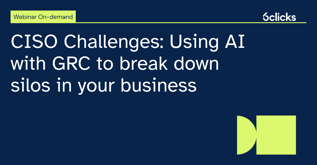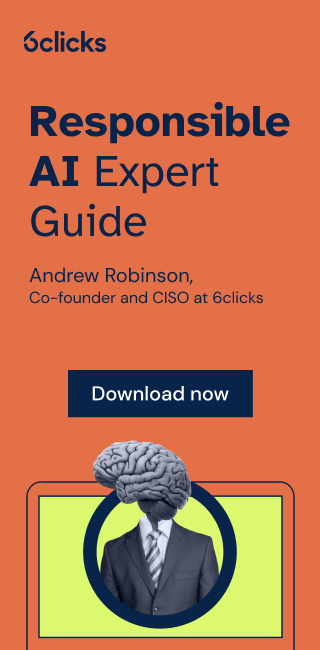As we enter 2023, it is a good time for legal and compliance professionals to reflect on the past twelve months and consider how they can improve their risk management practices in the new year. In today's rapidly changing environment, risk management initiatives must be more robust and adaptable to effectively address the diverse and evolving risks that organizations face. Legal and compliance leaders should prioritize building additional capabilities and establishing clear goals for 2023.
Below are the top risk management challenges for 2023.
1. Geopolitical risk
Tensions between countries and changes in international relations can have significant impacts on businesses, including risks related to trade, sanctions, and geopolitical instability. The US-China relationship is a major geopolitical risk for businesses in 2023, as competition and confrontation between the two countries are likely to extend into the military domain. While armed conflict remains unlikely, companies should be aware of the potential for accidents or miscalculations involving US and Chinese military vessels in Asia.
Businesses should also pay attention to efforts to decouple critical supply chains and be aware that rising bilateral tensions will not affect all companies equally. Companies in strategic and high-tech sectors in both countries may face increasing political risks, while those in less sensitive industries may experience more stable, "business-as-usual" conditions.
2. ESG risks
Environmental, social, and governance (ESG) risks are those that may affect a company in terms of its environmental, social, and governance practices. Companies may face risks related to environmental and social issues, such as climate change, resource scarcity, and changing consumer preferences.
While it is important to consider the potential negative impacts of ESG risks, it is also useful to recognize that these risks can present opportunities for growth.
3. Supply chain issues
The COVID-19 pandemic has had a significant impact on global supply chains, causing disruptions that continue to affect a range of industries. Risk assessors should take into account the potential impact of these supply issues on their businesses and consider whether their high-priority assets have dependencies on external factors.
It is a good idea to develop backup plans in case of supply chain disruptions. Unfortunately, supply chain risks are likely to remain a concern in the foreseeable future.
4. Cyber risk
Cyber risk is always a significant concern for risk management, and the impact of the pandemic has exacerbated this risk due to the increased use of remote work. With a largely remote workforce, companies have less control over devices and there are more potential points of exploitation due to the use of personal assets for work purposes.
Remote employees are at a higher risk of hacking due to the use of potentially less secure home connections and the increased use of online tools with minimal login security settings. The shift to remote work has also slowed the implementation of new technologies, which may expose companies to additional security gaps.
5. Regulatory risk
Changes in laws and regulations can impact businesses in terms of compliance, financial reporting, and other areas. One of the top regulatory risks for the year is the instability caused by government efforts to address difficult economic conditions and financial instability. Measures such as windfall taxes, trade restrictions, or protectionist supply chain mandates may result in increased pressure on corporations.
In some cases, regulatory changes may be temporary, but governments may also take the opportunity to make more significant, long-term changes to taxation, investment rules, and trading restrictions. Companies should be prepared for the potential impact of these regulatory shifts.
6. Rapid digital transformation
Digital transformation is being adopted rapidly, and the pandemic was a catalyst for this trend. However, technological advancement is also resulting in increased risk. Artificial intelligence (AI) is becoming increasingly prevalent in businesses, and this trend is expected to accelerate in the coming year. Other technologies such as 5G, blockchain, cloud computing, and the Internet of Things (IoT) are also supporting and enhancing AI, creating a rapidly-evolving technological landscape.
In this environment, it is important for businesses to consider themselves as tech companies and to re-design their processes, and develop the necessary skills to manage risk.
Final thoughts
Many companies have begun viewing risk management not just as a way to avoid negative outcomes, but as a way to gain a competitive advantage. As risk management becomes increasingly critical and relevant in the new year, we also need to acknowledge its complexity. Using a platform that combines the power of automation and AI to meet risk management needs is a logical next step for organizations.
At 6clicks, we consolidate everything you need for efficient risk management on a single platform. For more information, check out our comprehensive solution – Risk Management. See how our AI engine Hailey makes it possible to compare and map hundreds of standards to help you implement the relevant risk management frameworks, minus the manual work. To know more, get started with 6clicks and get a demo of our platform.
Written by Dr. Heather Buker
Heather has been a technical SME in the cybersecurity field her entire career from developing cybersecurity software to consulting, service delivery, architecting, and product management across most industry verticals. An engineer by trade, Heather specializes in translating business needs and facilitating solutions to complex cyber and GRC use cases with technology. Heather has a Bachelors in Computer Engineering, Masters in Engineering Management, and a Doctorate in Information Technology with a specialization in information assurance and cybersecurity.







